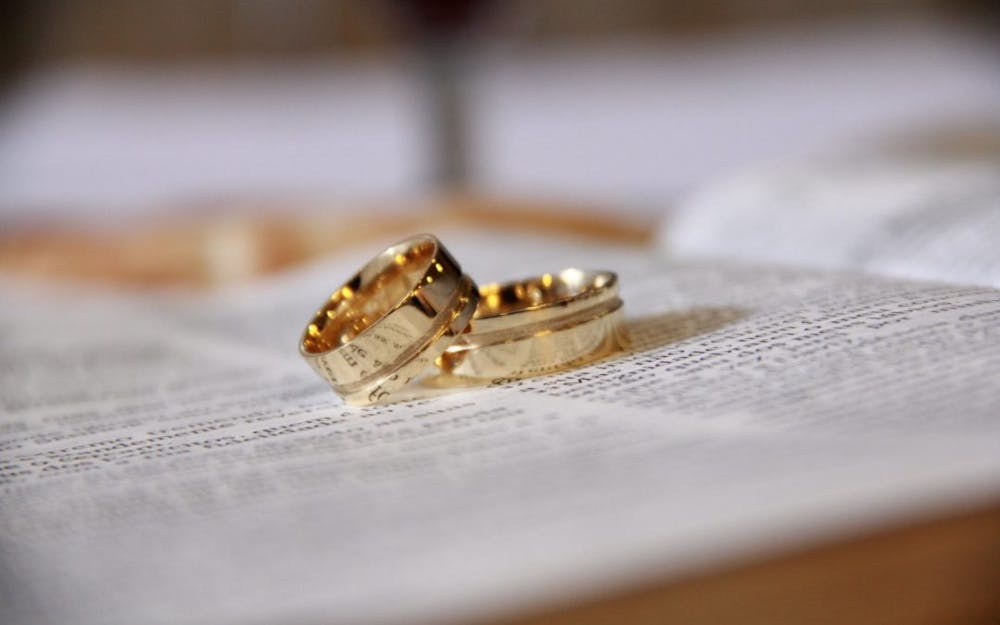The term “domestic partnership” confuses many Californians. Domestic partnerships are a very specific legal relationship available in California, similar to “civil unions” in other states. If you are considering marriage or an alternative to marriage, you may be eligible for a domestic partnership. It is important to understand how this relationship is different from marriage (or even cohabitation), and the Ventura and Santa Barbara same-sex divorce attorneys at Bamieh and De Smeth will explain some of the major differences.
How Domestic Partnerships are Different from Marriages in California
Domestic partnerships are a very specific legal relationship available to Californians who meet very specific qualifications. This is similar, functionally, to a marriage in many ways but is quite legally distinct. The following are three ways that marriage and domestic partnerships are very different.
Age and Sex Requirements
Domestic partnerships came into existence in 1999 as California’s attempt to create a middle-ground version of marriage for same-sex couples. When the US Supreme Court decided Obergefell v. Hodges in 2015, they established that marriage is legally available to anyone regardless of se, or sexual orientation. Because of this, domestic partnerships now mostly overlap with marriage in California.
When marriage was not available to same-sex couples, domestic partnerships were intended as a marriage-like relationship for same-sex couples. Because marriage was only available to opposite-sex couples, domestic partnerships are primarily available to same-sex couples. One major purpose behind allowing domestic partnerships was to give same-sex couples the right to visit their significant other in the hospital and share health insurance benefits, even if these rights came with a title other than “marriage.” To this end, you can also get a domestic partnership if at least one party is over 62 years old. This would give the domestic partner similar access to these kinds of rights without a entering into a marriage.
Legal Recognition in Other Places
Ever since its creation in 1999, both proponents and opponents of same-sex marriage have seen flaws with domestic partnerships and civil unions. Because of this, many issues regarding the legal strength – or perceived strength – of the union have caused problems for people in domestic partnerships.
A domestic partnership is seen as a different legal relationship from marriage. Because of this, other states and other countries might recognize these relationships as different, as well. If you enter into a domestic partnership in California but move to another state or another country with domestic partnerships or civil unions, it may be recognized there under a similar relationship. However, California’s domestic partnerships are stronger than those allowed in some other places. This means that coming to California after being involved in a civil union somewhere else may not give you the full rights of a CA domestic partnership.
Since domestic partnerships are likely to be recognized in other countries with similar civil unions, this can actually be an advantage. If a same-sex couple was lawfully married in California, but then moved to another country where same-sex marriage is illegal, their relationship may not be recognized at all or may be changed to a civil union/domestic partnership. Moving to another place that also recognizes civil unions may mean your legal relationship goes unchanged. If you plan to move to another country, entering into a domestic partnership in California may help ensure that your legal status does not change after you move. Talk to an attorney about the specifics of how this would work in your situation.
Federal law also may not recognize this union the same as “marriage,” which may have consequences when you try to file your taxes jointly.
Ease of Registration
Getting married requires getting a marriage license, having a ceremony, and registering the marriage license. This usually requires some cost for filing for the license, potential notary fees, and the assistance of a member of the clergy or a civil official to get the marriage carried-out.
In many cases, domestic partnerships are a bit easier to obtain. There are a few filing fees associated with registering your domestic partnership and your signatures need to be notarized. However, there is no cost for hiring a priest or a judge and no requirement that you have a ceremony.
Is a Domestic Partnership Better than Same-Sex Marriage?
In the vast majority of cases, the legalization of same-sex marriage made domestic partnerships unnecessary. Domestic partnerships may be slightly more inexpensive and have some differences in California, but they were primarily used as an alternative to marriage when marriage was unavailable for same-sex couples. Since the legalization of same-sex marriage across the country, same-sex couples can simply get married if they want to. Domestic partnerships have all the same rights as a marriage under California law, but they also share the same rules and processes for divorce. Because of this, it is important to discuss your situation with a family lawyer to see if there are any benefits or drawbacks to a domestic partnership in your situation.
Ventura Family Law Attorneys Available for Free Consultations
Talk to a Ventura family law attorney if you are considering a domestic partnership and discuss whether a marriage or a domestic partnership/civil union is best in your situation. The Ventura, CA family lawyers at The Law Offices of Bamieh and De Smeth can help advise you on the best legal strategies for your family or handle your divorce or dissolution of domestic partnership case. For a free consultation, call our law offices today at (805) 643-5555.



